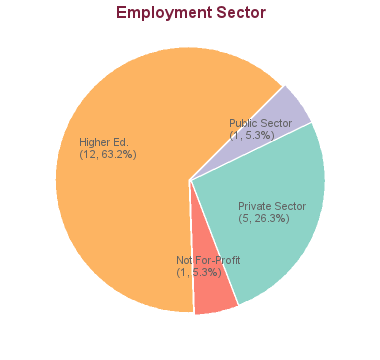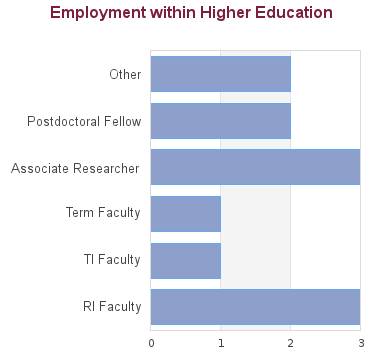
Ricardo Rivera-Acevedo
Job Title
Chief Scientific Officer. Cannabinologist
Employer
Ecovita Health Corp, Evitrade Health Systems

Review details about the recently announced changes to study and work permits that apply to master’s and doctoral degree students. Read more
The Deptment of Anesthesiology, Pharmacology & Therapeutics has a long-standing reputation of excellence in the field of drug research that goes back to 1951. Facult members in the Department are engaged in researh in areas of neural, cardiovascular, respiratory, endocrine and clinical pharmacology, pharmacoepidemiology, acute and chronic pain management, cardio-pulmonary sciences, clinical outcomes and patient safety, equity in medicine, evidence-based medicine and knowledge translation, intensive care, transplant and transfusion medicine, neurosciences and anesthesiology, obstetric anesthesiology, pediatric anesthesiology, perioperative technology and integration, pharmacoepidemiology, regional anesthesiology, as well as drug development. Exceptional students with an undergraduate degree may be admitted directly into the Ph.D. program. Some students do a combined M.D./Ph.D. program for which a separate admission into the M.D. program, by the Faculty of Medicine, is required. Students pursuing a Ph.D. will have the opportunity to interact with basic as well as clinical scientists.
The shared research interests in anesthesiology, pharmacology, drug development and therapeutics allow students to gain broad-based exposure to fundamental as well as medically-related aspects of drug research. Research projects in the department are funded by operating grants from CIHR, NSERC, The Heart Foundation, etc. In addition, many of our students receive the highly competitive CIHR and NSRC studentship awards.
The Faculty of Graduate and Postdoctoral Studies establishes the minimum admission requirements common to all applicants, usually a minimum overall average in the B+ range (76% at UBC). The graduate program that you are applying to may have additional requirements. Please review the specific requirements for applicants with credentials from institutions in:
Each program may set higher academic minimum requirements. Please review the program website carefully to understand the program requirements. Meeting the minimum requirements does not guarantee admission as it is a competitive process.
Applicants from a university outside Canada in which English is not the primary language of instruction must provide results of an English language proficiency examination as part of their application. Tests must have been taken within the last 24 months at the time of submission of your application.
Minimum requirements for the two most common English language proficiency tests to apply to this program are listed below:
Overall score requirement: 100
Reading
22
Writing
22
Speaking
22
Listening
22
Overall score requirement: 7.0
Reading
6.5
Writing
6.5
Speaking
6.5
Listening
6.5
Some programs require additional test scores such as the Graduate Record Examination (GRE) or the Graduate Management Test (GMAT). The requirements for this program are:
The GRE is not required.
Deadline to submit online application. No changes can be made to the application after submission.
Transcript DeadlineDeadline to upload scans of official transcripts through the applicant portal in support of a submitted application. Information for accessing the applicant portal will be provided after submitting an online application for admission.
Referee DeadlineDeadline for the referees identified in the application for admission to submit references. See Letters of Reference for more information.
All applicants have to submit transcripts from all past post-secondary study. Document submission requirements depend on whether your institution of study is within Canada or outside of Canada.
A minimum of two references are required for application to graduate programs at UBC. Each graduate program determines the type of reference (e.g. academic, professional) and number of references they require which can range from 2 to 4. References should be requested from individuals who are prepared to provide a report on your qualifications for the program.
Many programs require a statement of interest, sometimes called a "statement of intent", "description of research interests" or something similar.
Students in research-based programs usually require a faculty member to function as their thesis supervisor. Please follow the instructions provided by each program whether applicants should contact faculty members.
As the PCTH PhD program is research-based, students will need to find a faculty member who will supervise their research project. As faculty can supervise a limited number of students, we strongly encourage students to contact and confirm a supervisor before submitting their application.
Permanent Residents of Canada must provide a clear photocopy of both sides of the Permanent Resident card.
All applicants must complete an online application form and pay the application fee to be considered for admission to UBC.
| Fees | Canadian Citizen / Permanent Resident / Refugee / Diplomat | International |
|---|---|---|
| Application Fee | $116.25 | $168.25 |
| Tuition * | ||
| Installments per year | 3 | 3 |
| Tuition per installment | $1,875.34 | $3,294.66 |
| Tuition per year (plus annual increase, usually 2%-5%) | $5,626.02 | $9,883.98 |
| Int. Tuition Award (ITA) per year (if eligible) | $3,200.00 (-) | |
| Other Fees and Costs | ||
| Student Fees (yearly) | $1,144.10 (approx.) | |
| Costs of living | Estimate your costs of living with our interactive tool in order to start developing a financial plan for your graduate studies. | |
Applicants to UBC have access to a variety of funding options, including merit-based (i.e. based on your academic performance) and need-based (i.e. based on your financial situation) opportunities.
From September 2024 all full-time students in UBC-Vancouver PhD programs will be provided with a funding package of at least $24,000 for each of the first four years of their PhD. The funding package may consist of any combination of internal or external awards, teaching-related work, research assistantships, and graduate academic assistantships. Please note that many graduate programs provide funding packages that are substantially greater than $24,000 per year. Please check with your prospective graduate program for specific details of the funding provided to its PhD students.
This results in a net balance (any funding provided to the student minus tuition and fees) mean of $21,219 and median of $19,521.
All applicants are encouraged to review the awards listing to identify potential opportunities to fund their graduate education. The database lists merit-based scholarships and awards and allows for filtering by various criteria, such as domestic vs. international or degree level.
Many professors are able to provide Research Assistantships (GRA) from their research grants to support full-time graduate students studying under their supervision. The duties constitute part of the student's graduate degree requirements. A Graduate Research Assistantship is considered a form of fellowship for a period of graduate study and is therefore not covered by a collective agreement. Stipends vary widely, and are dependent on the field of study and the type of research grant from which the assistantship is being funded.
Graduate programs may have Teaching Assistantships available for registered full-time graduate students. Full teaching assistantships involve 12 hours work per week in preparation, lecturing, or laboratory instruction although many graduate programs offer partial TA appointments at less than 12 hours per week. Teaching assistantship rates are set by collective bargaining between the University and the Teaching Assistants' Union.
Academic Assistantships are employment opportunities to perform work that is relevant to the university or to an individual faculty member, but not to support the student’s graduate research and thesis. Wages are considered regular earnings and when paid monthly, include vacation pay.
Canadian and US applicants may qualify for governmental loans to finance their studies. Please review eligibility and types of loans.
All students may be able to access private sector or bank loans.
Many foreign governments provide support to their citizens in pursuing education abroad. International applicants should check the various governmental resources in their home country, such as the Department of Education, for available scholarships.
The possibility to pursue work to supplement income may depend on the demands the program has on students. It should be carefully weighed if work leads to prolonged program durations or whether work placements can be meaningfully embedded into a program.
International students enrolled as full-time students with a valid study permit can work on campus for unlimited hours and work off-campus for no more than 24 hours a week during academic sessions.
A good starting point to explore student jobs is the UBC Work Learn program or a Co-Op placement.
Students with taxable income in Canada may be able to claim federal or provincial tax credits.
Canadian residents with RRSP accounts may be able to use the Lifelong Learning Plan (LLP) which allows students to withdraw amounts from their registered retirement savings plan (RRSPs) to finance full-time training or education for themselves or their partner.
Please review Filing taxes in Canada on the student services website for more information.
Applicants have access to the cost estimator to develop a financial plan that takes into account various income sources and expenses.
23 students graduated between 2005 and 2013. Of these, career information was obtained for 19 alumni (based on research conducted between Feb-May 2016):


Those with a Ph.D. join the academia, drug control agencies in government and pharmaceutical industry or start their own drug development and consultancy units.
These statistics show data for the Doctor of Philosophy in Pharmacology (PhD). Data are separated for each degree program combination. You may view data for other degree options in the respective program profile.
| 2023 | 2022 | 2021 | 2020 | 2019 | |
|---|---|---|---|---|---|
| Applications | 18 | 25 | 16 | 18 | 13 |
| Offers | 2 | 2 | 2 | 2 | 1 |
| New Enrolment | 2 | 2 | 2 | 2 | 1 |
| Total Enrolment | 10 | 7 | 8 | 7 | 7 |
Students in research-based programs usually require a faculty member to function as their thesis supervisor. Please follow the instructions provided by each program whether applicants should contact faculty members.
As the PCTH PhD program is research-based, students will need to find a faculty member who will supervise their research project. As faculty can supervise a limited number of students, we strongly encourage students to contact and confirm a supervisor before submitting their application.
These videos contain some general advice from faculty across UBC on finding and reaching out to a supervisor. They are not program specific.
This list shows faculty members with full supervisory privileges who are affiliated with this program. It is not a comprehensive list of all potential supervisors as faculty from other programs or faculty members without full supervisory privileges can request approvals to supervise graduate students in this program.
| Year | Citation |
|---|---|
| 2024 | Chronic obstructive pulmonary disease, aka COPD, is the 3rd leading cause of death worldwide. Dr. Nwozor studied the interplay between ageing and cigarette smoke in the development and progression of COPD, showed that epithelial barrier function and lung fibroblast repair decrease with age and identified potential therapeutic interventions for COPD. |
| 2024 | Dr. Usman studied how the lungs repair after injury, both in healthy people and those with chronic obstructive pulmonary disease (COPD). She found that the inflammatory mediator, interleukin-1 alpha is vital in preventing scaring, and that targeting specific master regulators of this mediator could lead to new treatments for COPD. |
| 2024 | Dr. Sauge investigated how the byproduct of losartan, EXP3179, specifically improves blood vessel function by raising nitric oxide levels, regardless of its effects on blood pressure. Her research offers new insights into the protective roles of losartan in chronic lung diseases and paves the way for novel therapies beyond hypertension management. |
| 2023 | Dr. Kim studied movement disorders in precariously housed and homeless people. He found that substance use and psychosis were differentially associated with movement disorders, and that parkinsonism rapidly increased over time. His research helps increase awareness of movement disorders in at-risk groups, especially during the overdose crisis. |
| 2023 | Mutations have rendered the current therapeutics ineffective against the circulating strains of the pandemic viruses. Dr. Jalily designed and developed a new class of antivirals that can inhibit novel pandemic strains of the influenza virus.His work can aid the development of novel antivirals against mutated variants of influenza and coronaviruses. |
| 2022 | Dr. Tehrani studied how a common class of blood pressure medications can reduce aortic aneurysms in mice by increasing levels of nitric oxide, independently from their blood pressure lowering effects. This research provides new insight on how these medications work in aortic aneurysms and may aid in the development of novel treatments for patients. |
| 2022 | Dr. Alamri studied synaptic proteins in the brain samples of older people. She found that higher amounts of specialized proteins contributed to better memory and lowered the risk of depression. Her findings demonstrated that synaptic proteins could serve as targets for developing treatments for disorders that affect the brain in old age. |
| 2020 | Dr. Baronas discovered new regulatory mechanisms for a potassium channel involved in severe childhood epilepsy and movement disorders. Her findings demonstrate how a potassium channel can be influenced by its environment, and reveal unexpected ways that electrical signaling in the brain can be regulated and disrupted in neurological diseases. |
| 2020 | Dr. Thompson studied how the delayed rectifier potassium current (IKs) responds to phosphorylation at high heart rates. She shows that phosphorylation allows these channels to open more quickly, enabling the heart to relax faster, and protects against arrhythmia. This research provides important insight into the mechanism behind this response. |
| 2020 | Dr. Booth investigated the development of small airways disease in patients with chronic obstructive pulmonary disease (COPD). He showed that patients in the early stages of COPD already have chronically inflamed airways and tissue destruction. His work increases our knowledge of small airways disease in COPD and provides new avenues for treatment. |
Pharmacology offers training in cardiovascular pharmacology, neuropharmacology, viral pharmacology, free radical biology, and drug development. Additional training programs exist in therapeutics, evidence-based medicine, and clinical investigation which reflecting the close association between the disciplines of anesthesiology, pharmacology, and therapeutics.
Departments/Programs may update graduate degree program details through the Faculty & Staff portal. To update contact details for application inquiries, please use this form.

From academic excellence and modern facilities to our diverse degree program listings to being named one of the “most innovative universities” by Reuters in 2019, UBC has a lot to offer.